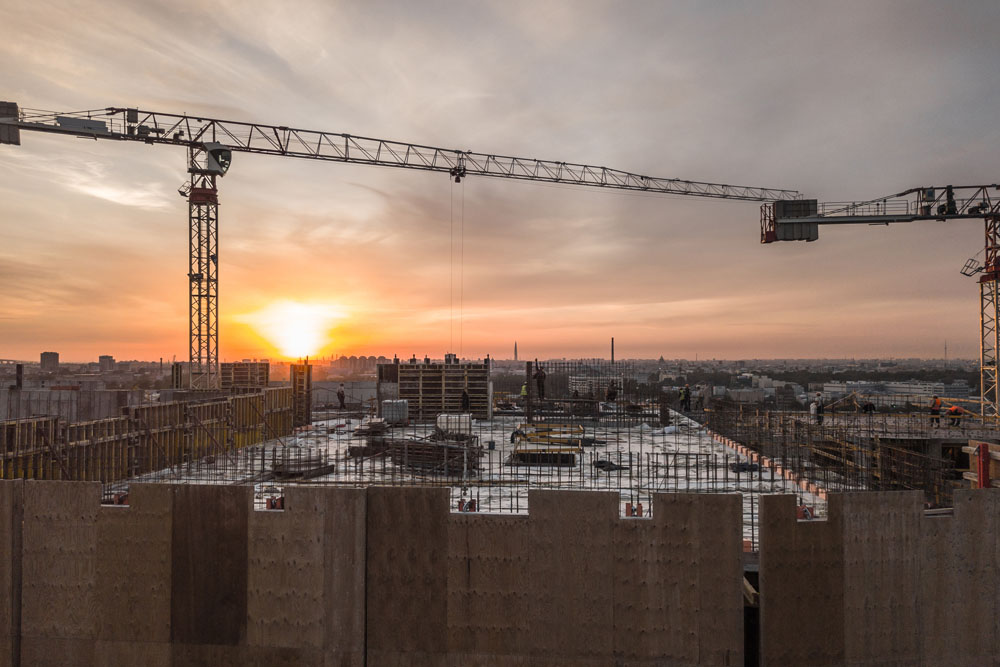Share this article:
40% of construction companies reported an increase in turnover at the end of 2022 and almost one in four expect turnover to increase in the first quarter of 2023, according to the Construction Industry Federation’s latest Economic Outlook.
Rising costs continue to present a challenge to the industry with 88% surveyed experiencing an increase in the cost of materials in the last quarter of 2022, and 67% expecting increases to continue into 2023.
The cost of building materials continues to be the biggest concern for construction companies over the next three to six months (74%), followed by access to skilled labour (72%) and securing a healthy profit margin on projects (65%). Continuity of work (48%) and supply chain disruption followed (34%).
The Construction Industry Federation Economic Outlook surveyed 288 of its members to measure the performance of the construction sector in the previous quarter (Oct-Dec 2022) and the likely future performance of the sector in the next three-month period (Jan-April 2023).
77% of companies reported that sustainability is now a very important part of business, with over half seeing an increase in demand for sustainable construction from clients. Companies are keen to access more general training and education on sustainability, alongside greater knowledge on sustainability regulations and legislation, and running an environmentally and resource-efficient site.
76% of companies expect the move to sustainability to have an increase in the demand for off-site construction manufacturing, with 45% expecting off-site construction methods to become more mainstream this year.
Paul Sheridan, Director of Main Contracting, Construction Industry Federation said:
“General contractors are reporting increases in turnover resulting from Government investment in necessary infrastructure under the NDP. Alongside the delivery of this essential infrastructure to support Housing for All and the Climate Acton Plan, we are also seeing strong FDI, office refurbishments and retrofitting, which may be underpinning this industry sentiment.
“Costs remain a challenge and a drag on growth and profitability in the sector. While turnover for 40% of contractors is rising, the legacy of material costs increases on projects over the last number of years continues to have an impact. This continued volatility is affecting the viability of commercial and industrial construction projects vital to economic growth and the health of the construction supply chain.
“Furthermore, the lack of effective and equitable inflation management mechanisms in public works contracts presents significant risk for contractors, which are instead seeking more attractive opportunities in other markets. This comes at a time when the Government needs construction contractors to support the delivery of the NDP to build the necessary infrastructure for Climate Action and Housing for All.”
Conor O’Connell, Director of Housing and Planning, Construction Industry Federation said:
“Housing sentiment remains somewhat mixed. While housing commencements have increased in January, housebuilders remain concerned that increases in regulatory and material costs may impact on viability in 2023.
“Many are reporting very significant delays in securing permissions to activate. The retraction of international funds forward funding new apartment construction will also impact on completions later in 2023.
“Demand remains strong for traditional own-door units and measures such as the extension of the Help to Buy Scheme, the First Home Scheme and the changes to the macro prudential rules means that houses are now more attainable to buyers than in previous years. The need to control input costs, introduce viability for apartment schemes and secure planning for viable homes is key to ensuring supply grows in 2023 and beyond.”
